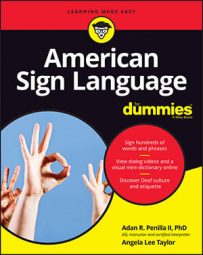The child with Deaf parents would interpret in a variety of situations. Deaf parents would depend on their children as laws requiring companies and agencies to provide ASL interpreters were also not yet established.
Deaf parents had to manage their business affairs through children who did their best but often did not have an adult mentality to understand adult things, planning funerals, medical appointments, car sales, apartment leases, and the like. Again, this was by no fault of the Deaf parents; professional interpreters were not what you know of today.
In was in 1964 at Ball State Teachers College that the Registry of Interpreters for the Deaf had its origins. This was the first meeting for using interpreters for Deaf people. However, Texas did have a society of interpreters that was established before the RID; the Texas Society of Interpreters for the Deaf was established in 1963.
Interpreters under the RID must adhere to a professional code of conduct, although this standard has changed throughout the years, confidentiality is still at the top of the list of tenets. Confidentiality is a matter of trust; this must be maintained at all times. Can you imagine a stranger knowing your personal information and telling other people? Think of having a medical appointment and the information gets back to your family; this must not happen. Although confidentiality is not the only tenet, it is the base to a professional relationship. If you cannot be trusted, you will find yourself without work.
Deaf etiquette is shown by Deaf having the right to ask if an interpreter is certified. Requesting a male or female interpreter is also appropriate. For a Deaf person to request a certain interpreter or not want a certain interpreter is a common occurrence. There should be no hard feelings, it is both a personal and a professional decision by Deaf people. In turn, interpreters maintain their professional demeanor and do not allow personal experience to interfere with their work; they stay neutral and interpret to the spirit of the message for all assignments.
Interpreters are required to maintain their membership with the RID. They must attend professional development workshops and conferences to maintain their certifications.
Respect for colleagues and consumers is equally important.
You can learn more about ASL interpreters and the RID by going to RID.org.

